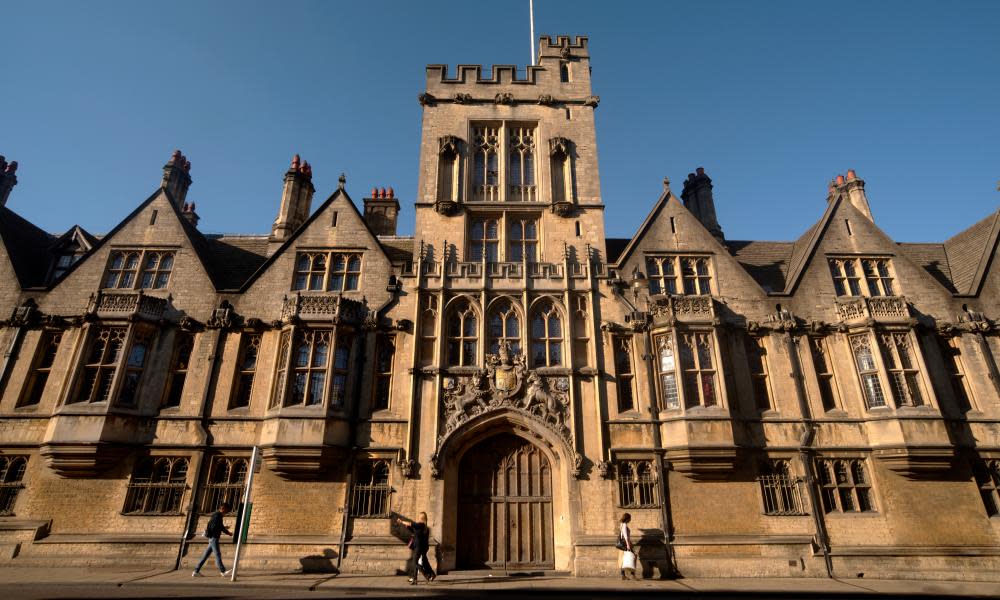Graduate in £1m claim was badly let down by Oxford, court told

An Oxford graduate is suing the university for £1m on the grounds that his failure to get a top degree 17 years ago cost him the chance of a lucrative legal career.
Faiz Siddiqui alleges the “inadequate” teaching he received on the Indian special subject part of his modern history course resulted in him getting only a low upper second degree when he took his finals in June 2000 instead of a first or high 2:1.
Siddiqui, 39, has blamed the situation on a number of members of staff being absent on sabbatical leave and a failure to find cover. He has also alleged that a tutor failed to submit medical information about him to examiners.
He claims he would have become an international commercial lawyer if he had gained the top qualification at the end of his time at Brasenose College, and that his clinical depression and insomnia have been significantly exacerbated by his “inexplicable failure”.
The legal battle between Siddiqui and Oxford has been ongoing for more than a year. Last year a judge allowed Siddiqui’s action to proceed to be fully argued after Oxford claimed the case had no merit and had been brought outside the legal time limit.
It was decided at the time that Siddiqui had a real chance of persuading a judge that the case was not time-barred or that it would be just for it to proceed in any event.
At the high court in London on Tuesday, Siddiqui’s barrister, Roger Mallalieu, told Mr Justice Foskett that in 2000 Siddiqui was a “driven young man” aiming for a postgraduate qualification from an Ivy League university before a career at the tax bar in England or a major US law firm.
“Whilst a 2:1 degree from Oxford might rightly seem like a tremendous achievement to most, it fell significantly short of Mr Siddiqui’s expectations and was, to him, a huge disappointment,” Mallalieu said.
Siddiqui’s employment history after Oxford in legal and tax roles was “frankly poor” and he was now unemployed, the barrister added. “Mr Siddiqui has been badly let down by Oxford. He went there with high – perhaps extraordinarily high – expectations.
“He and others became the victims of poor teaching provision by the university in what was anticipated to be his favoured special subject, and he, uniquely among his peers, was further disadvantaged by his personal tutor not conveying his knowledge of his illnesses to those responsible for making reasonable adjustments and for moderating his examinations.”
Siddiqui is bringing a loss of earnings claim of at least £1m against the chancellor, masters and scholars of Oxford University.
The university denies negligence and causation and says the case has been brought “massively” outside the legal time limit.
The university has previously admitted it had “difficulties” running the module in the year Siddiqui graduated because half of the teaching staff responsible for Asian history were on sabbatical leave at the same time.
Siddiqui has said the standard of tuition he received from Dr David Washbrook declined as a result of the “intolerable” pressure the historian was placed under.
In the academic year 1999-2000, four of the seven faculty staff were on sabbaticals. At the hearing last year, Mallalieu said that of the 15 students who received the same teaching and sat the same exam as Siddiqui, 13 received their “lowest or joint lowest mark” in the subject.
If Siddiqui wins, the case could open the floodgates for similar claims from students complaining about inadequate teaching, unsuitable accommodation and poor decision making at the university.
The seven-day hearing is concerned only with liability, with damages only to be assessed at a later date if Siddiqui succeeds.

 Yahoo News
Yahoo News 
